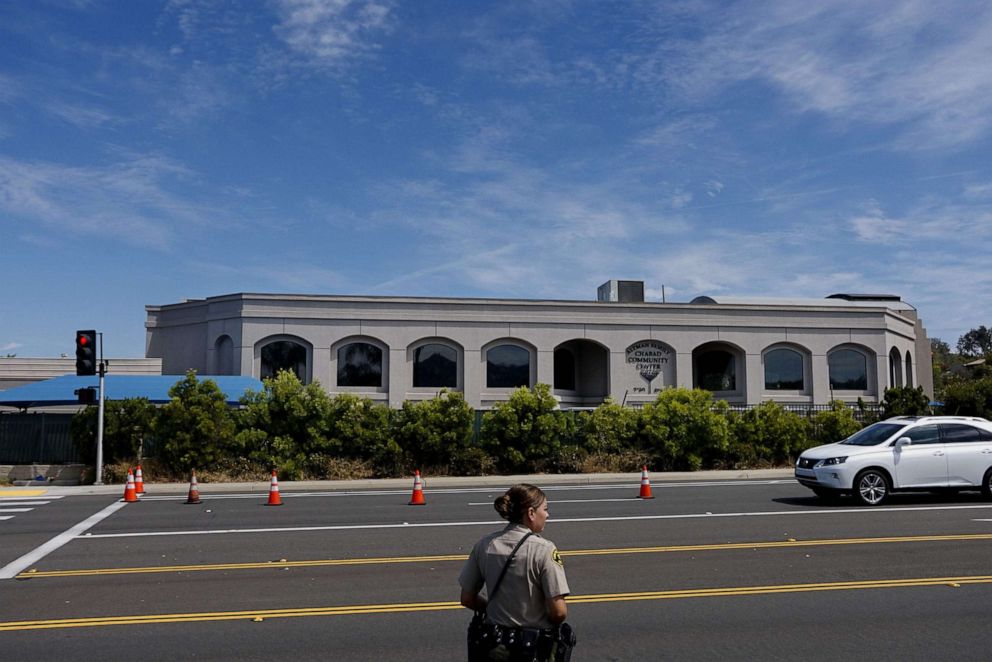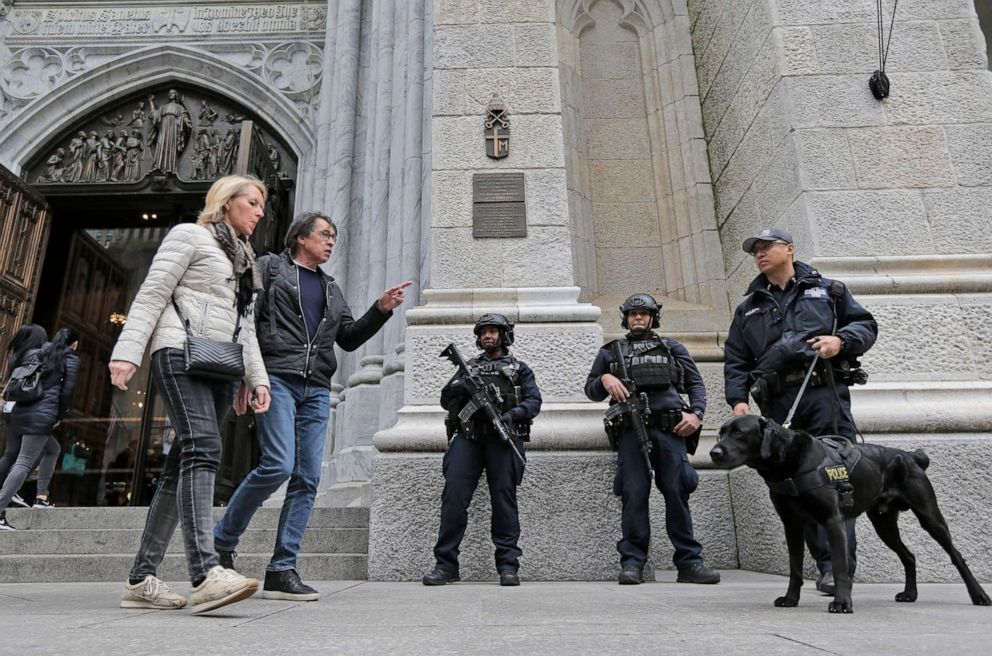'A period of heightened threat': How law enforcement is responding to attacks on houses of worship
The San Diego shooting is the latest incident targeting a religious site.
In a little over a month, there have been at least five attacks on houses of worship of three different faiths across the U.S., capped off with the deadly shooting at a California synagogue this weekend.
On March 24, a little over a week after the deadly shooting at two mosques in New Zealand, there was a fire at a mosque in Escondido, California.
Two days later, the first of three historically black churches was burned in Louisiana. Two more fires tied to the same suspect happened the following week.
On April 17, two days after a fire burned the historic Notre Dame Cathedral in Paris, the cause of which is still being determined, a man was arrested after entering St. Patrick's Cathedral in New York City with two gasoline canisters, two bottles of lighter fluid and butane lighters.
Deadly bombings at churches and hotels in Sri Lanka on Easter prompted a visible increase in police presence in front of churches in major American cities like New York.
Finally, on April 27, there was a deadly shooting at a synagogue in a suburb of San Diego.
"The reality is we are in a period of heightened threat," said John Cohen, a former acting undersecretary at the Department of Homeland Security and current ABC News contributor.
"We are experiencing an increase in targeted attacks against people and places associated with religious worship and beliefs. That said, the FBI and state and local law enforcement are very aware of the threat and are working aggressively to address it," Cohen said.

The latest attack, where one woman was fatally shot and others were injured inside a Poway synagogue near San Diego, has led to increased security efforts across the country.
In Chicago and Los Angeles, police spokespeople have confirmed that officers are doing more patrols and increasing their visibility around synagogues and other religious institutions in the wake of Saturday's shooting.
The same is true in the New York City area, which has more Jewish residents than in Jerusalem and Tel Aviv combined, according to multiple population reports. New York Gov. Andrew Cuomo announced Sunday that he was directing state police to "increase their security presence at synagogues and houses of worship."

"We must come together during this troubling time to root out hate in all its forms and show the nation we will never be divided by these despicable acts of violence," Cuomo said in a statement.
Cohen said there are three ways that law enforcement can help secure houses of worship: outreach to local religious leaders, increased physical security and visible deterrents and covert surveillance like undercover officers.
While some congregations have been hiring private security teams “for some time now,” Cohen said he's increasingly hearing it raised as "a topic of conversation with faith leaders."
"The idea that we can put a uniformed police officer in front of every house of worship is unrealistic. That means we need to focus on why the trend is occurring and do more to address it," he said.
He went on, "This is a concern that has been elevated for some time. They have been tracking the increase in targeted acts of violence and hate crimes directed at both faith-based facilities as well as individuals because of their faith."




